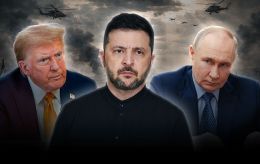Dangerous rhetoric? Is there threat from Trump's sharp statements about Zelenskyy and war in Ukraine
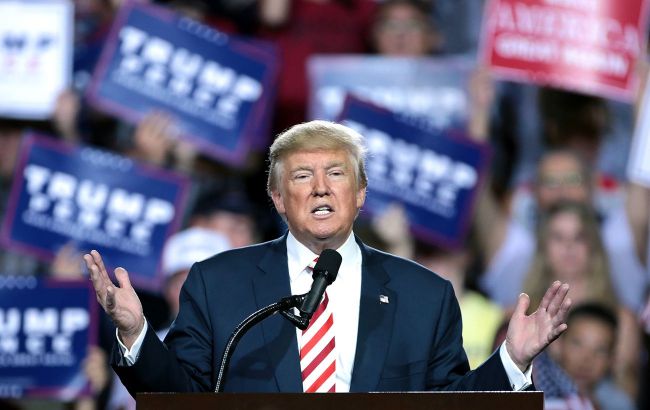 Republican US presidential candidate Donald Trump (photo: flickr.com/gageskidmore)
Republican US presidential candidate Donald Trump (photo: flickr.com/gageskidmore)
US presidential candidate Donald Trump has once again made statements related to Ukraine. In particular, he called President Volodymyr Zelenskyy "the best salesman in history" and promised to "pull America out of the war." What does Trump's rhetoric mean, is it anti-Ukrainian, and is there a threat from such sharp statements? – in material by RBC-Ukraine.
Contents
- What Trump said about Zelenskyy and the war in Ukraine
- Why Trump dislikes Ukraine and its president
- What Trump's rhetoric means and what really matters
- What the potential risks are and what we should prepare for
What Trump said about Zelenskyy and the war in Ukraine
At a campaign rally in Pennsylvania, Donald Trump indicated that his approach to policy regarding Ukraine would change if he were to win. "If I win this election, the first thing I’m going to do is call up Zelenskyy and call up President Putin and I say, ‘You got to make a deal, this is crazy,’" he stated, implying that he would push both sides toward negotiations to end the war.
Additionally, he made a personal jab at Zelenskyy.
"I think Zelenskyy is the greatest salesman in history – every time he comes into the country, he walks away with US$60 billion," he remarked. He also suggested that Zelenskyy allegedly wants his opponent Kamala Harris to win.
The following day, speaking in Georgia, Trump accused Joe Biden and Harris of "pulling America into the Russian-Ukrainian war," from which "they can't pull us out."
"I'll get it done. I'll get it negotiated, I'll get out. We gotta get out. Biden says, 'We will not leave until we win.' What happens if they (Russia-ed.) win" he added.
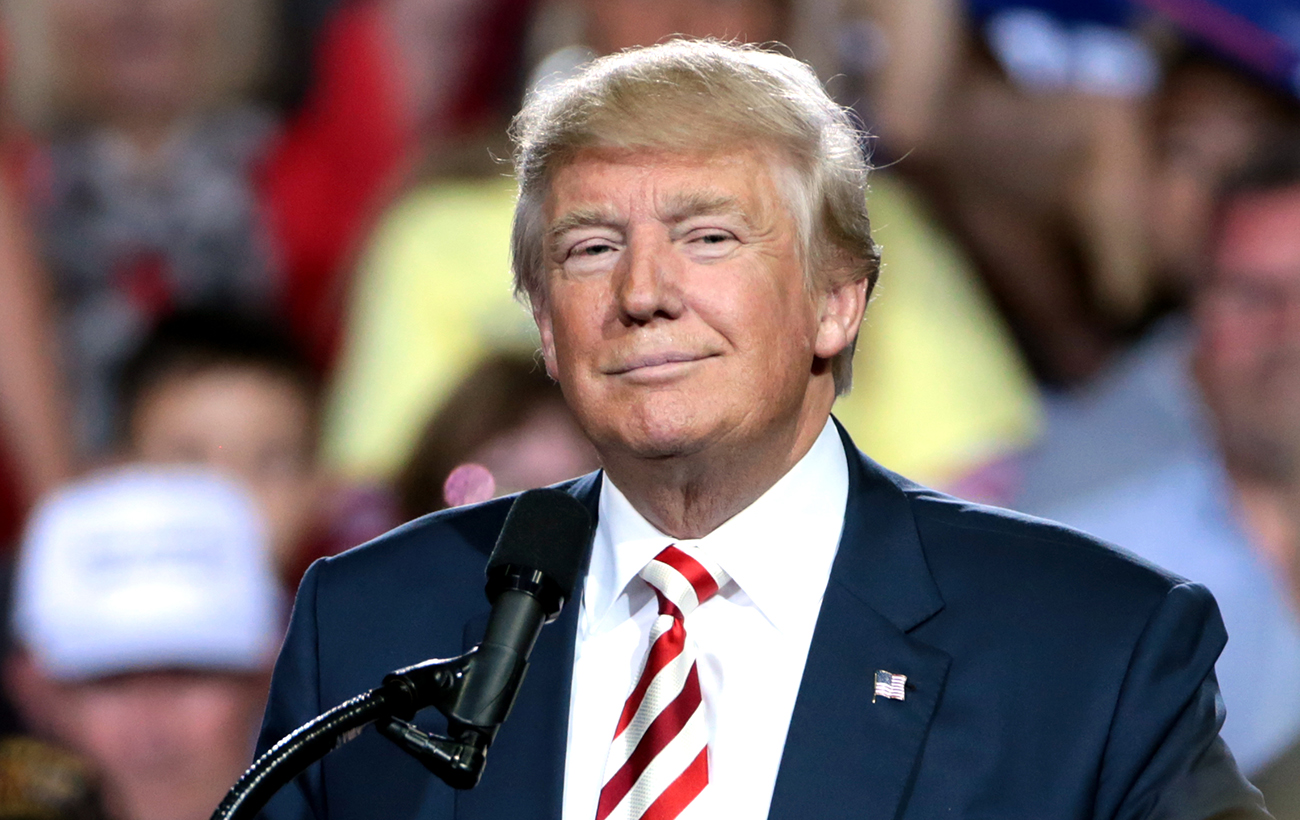
Trump again called Zelenskyy the best salesman in history (photo: flickr.com/gageskidmore)
His comments came at a time when Zelenskyy had already arrived in the US for a working visit. On Thursday, he is set to present his victory plan to Biden and Harris, which includes an invitation for Ukraine to join NATO and commitments for ongoing weapons supplies. It was expected that the plan would also be presented to Trump, but that seems to be in doubt.
Notably, the Republican candidate has previously used the phrase "the best salesman."
"I think Zelenskyy is maybe the greatest salesman of any politician that’s ever lived. Every time he comes to our country, he walks away with $60 billion... It never ends. I will have that settled prior to taking the White House as president-elect. It's gotta stop," he said in June in Detroit.
A month later, the party's convention officially nominated him as a candidate. After that, there was a "very good phone call" with Zelenskyy. "He condemned heinous assassination attempt... I appreciate President Zelenskyy for reaching out because I, as your next President of the United States, will bring peace to the world and end the war that has cost so many lives and devastated countless innocent families. Both sides (Ukraine and Russia-ed.) will be able to come together and negotiate a deal that ends the violence and paves a path forward to prosperity," Trump noted.
This shows that his rhetoric can soften depending on the context. However, it generally reflects his complicated attitude toward Ukraine.
Why Trump dislikes Ukraine and its president
The issue has deep roots, tracing back to the first hints of alleged Ukrainian interference in the 2016 presidential campaign and the impeachment saga in 2019.
It all started with the so-called "black book" of the Party of Regions (a former Ukrainian political party-ed.), which revealed the name of Paul Manafort (Trump's campaign manager in 2016) with alleged payments of about $13 million between 2007 and 2012. This episode became public just months before the showdown with Hillary Clinton. Manafort ultimately faced a series of charges in the US, but the "black book" was not used as evidence.
Trump's victory in 2016 was overshadowed by the Russian hack of the Democratic Party's emails aimed at discrediting Clinton. However, Trump himself promoted the conspiracy theory that Ukraine was allegedly behind the operation and "hid the server with the data." Partly due to these suspicions, he advocated for freezing military aid.
A central role in one of the most awkward episodes of his career was played by the phone call with Zelenskyy in July 2019, during which he urged the Ukrainian president to launch an investigation into Biden. The reason was a recording of his threat (during his vice presidency under Barack Obama) to withhold financial aid if then-General Prosecutor Viktor Shokin was not fired.
Trump believed he could prove that this pressure might be linked to the investigation into his son Hunter, who worked for the gas company Burisma. However, the push for Shokin's dismissal was coordinated by the US State Department and the EU due to concerns that he was sabotaging anti-corruption cases. In the phone call, Zelenskyy said he would check what he could do, but no investigation took place. "Trump hates Zelenskyy with passion. And Zelenskyy knows it," Politico quoted businessman Lev Parnas, who was once an intermediary for Rudy Giuliani (Trump's lawyer) in Ukraine.
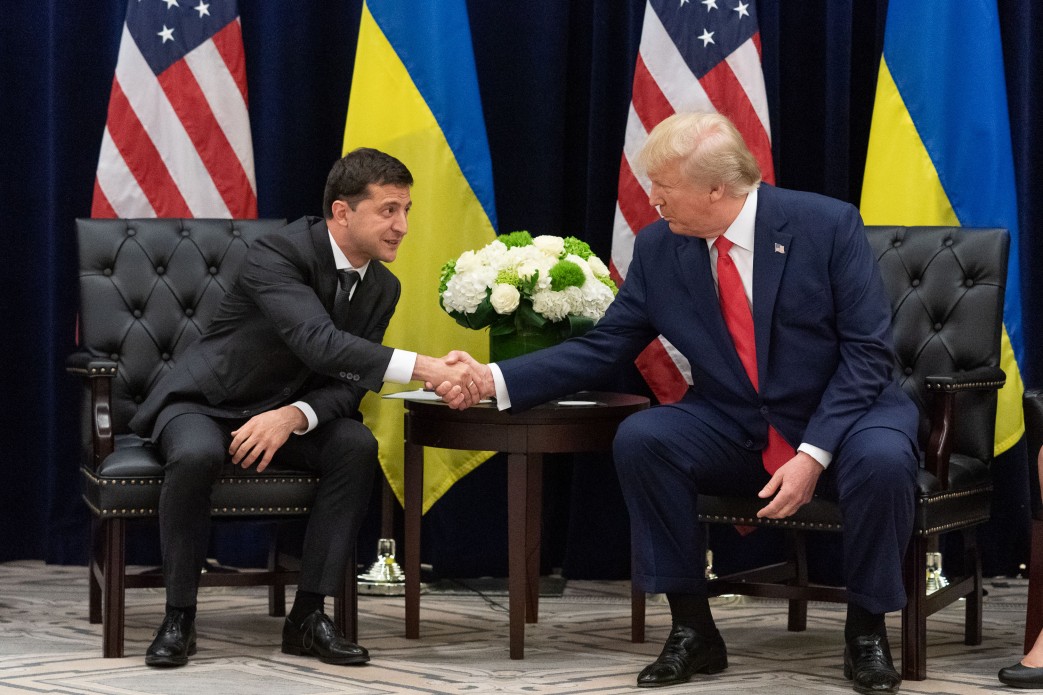
Trump has a complicated attitude toward Ukraine since his presidential term from 2016 to 2020 (photo: president.gov.ua)
This information in Western media often does not reflect reality, explains Volodymyr Fesenko, Chairman of the Board of the Center for Applied Political Studies PENTA. To judge Trump’s attitude toward Zelenskyy, it is enough to look at what he has said before.
"He has repeatedly stated that he has great relationships with both Putin and Zelenskyy. He had a phone call with Zelenskyy in July. As confirmed by both sides, the conversation was normal and friendly. Moreover, when Zelenskyy won the elections, Trump was one of the first to congratulate him," he said in a comment to RBC-Ukraine.
Regarding Ukraine, it cannot be said that Trump hates it. His complicated attitude toward Ukraine is a fact. However, it’s not about the country; he probably knew little and knows little about Ukraine. "What matters is that he reacts to the context. Everyone knows that he has respect for dictators and strong leaders. Therefore, his attitude toward great countries is quite different from those that do not have such power," Fesenko noted.
In 2016, some Ukrainian politicians publicly supported Hillary Clinton. And Trump, who fixates on such things, concluded that he is not liked in Ukraine, which laid the foundation for his skepticism toward the country. However, as practice has shown, this did not prevent him from taking some real steps. Moreover, it was under Trump that Ukraine received its first lethal weapons from the US, which he himself publicly pointed out.
"Not because he loved Ukraine. It was needed as a gesture to show that he is not pro-Russian. Either Putin will negotiate, or he will help Ukraine. He has no love for it. But overall, Trump’s attitude toward our country has always been pragmatic. And this did not hinder bilateral contacts," the political scientist added.
What Trump's rhetoric means and what really matters
There’s nothing new in Trump calling Zelenskyy the best salesman; similar statements have been made before, says Fesenko. Much more important are two other points that could potentially be problematic.
The first is that Trump claimed Zelensky allegedly supports Kamala Harris, which is not true. "He said this publicly, which means that someone close to him has turned Trump against Zelenskyy," believes the source.
The second point is more serious. Today, his campaign stated that they did not plan a meeting with Zelensky where he was supposed to present his victory plan. If this is confirmed, it somewhat distorts the purpose of the Ukrainian president's visit to the US.
"Most likely, there were negotiations, and the Ukrainian side wanted a meeting, but Trump refused. This signal is not very good. It indicates that we have a problem in our relations with Trump's team," emphasized Fesenko.
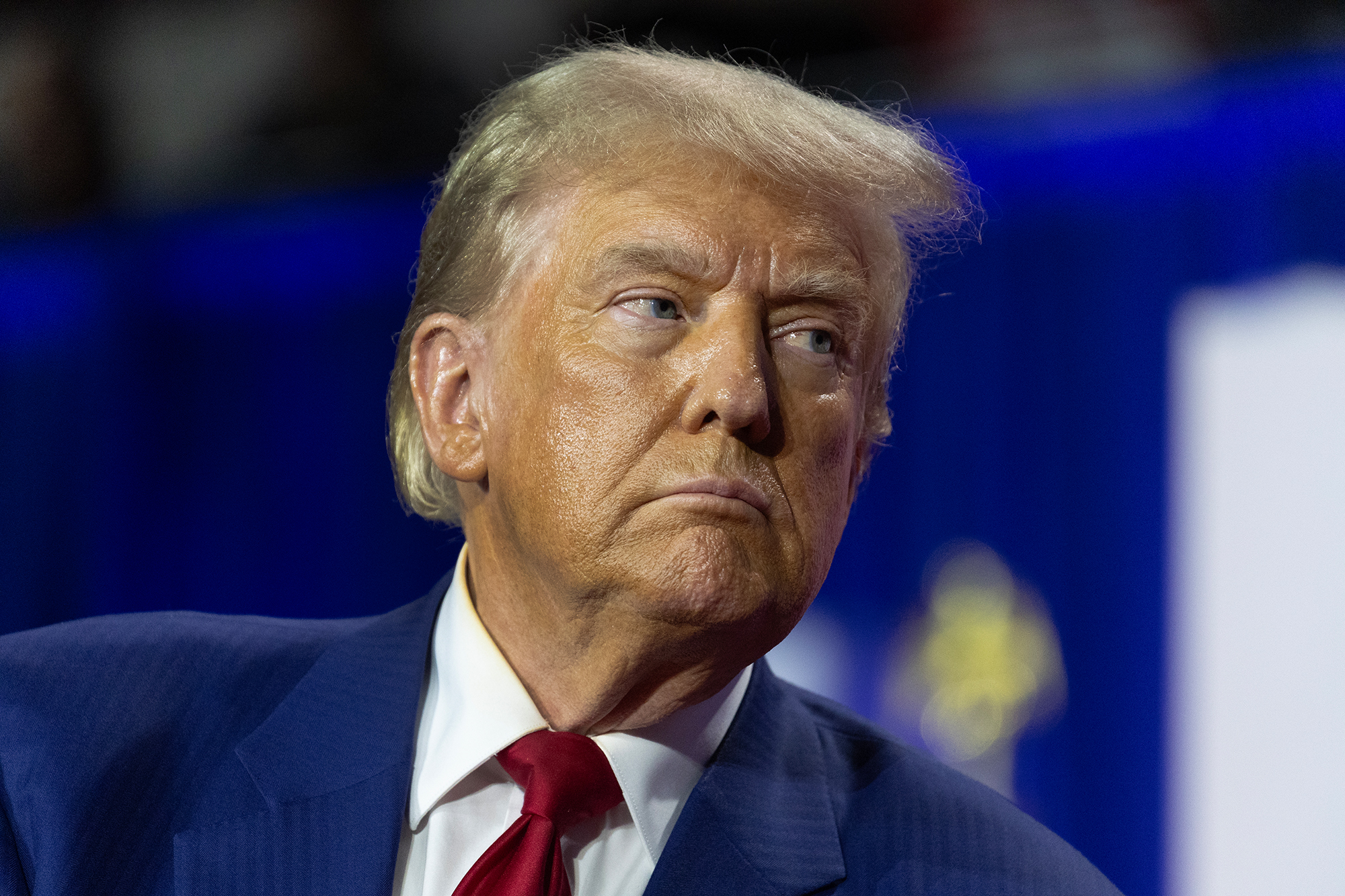
Concerns arise not from Trump calling Zelensky a "salesman," but from the refusal to meet regarding Ukraine's victory plan. (Photo: Getty Images)
The issue is not only for Ukraine but also for the United States. If Trump refuses to engage with Zelenskyy, the realization of his idea for a quick end to the war is in question. You cannot end a war without negotiating with Ukraine.
"If he moves towards ending it on Russia's terms and halts support for Ukraine, it will signify a defeat for the US. This is how it will be perceived in China, Iran, and elsewhere—as a defeat and a manifestation of US weakness. Then, all real and potential adversaries will begin to pressure the US, leading to a chain reaction of defeats. What matters is not the words about a salesman or ending the war. The problem is that Trump has stated the alleged support for Harris from Zelenskyy and possibly refused a meeting," emphasized the political scientist.
In a similar vein, Mykhailo Podolyak, an advisor to the head of the President's Office, expressed his views. He said he remains calm about Trump's campaign rhetoric but believes that if Trump wins the election and receives all the necessary data, he will decide that the reputation of the US is more important.
"President Zelensky is not selling air but a concrete thing—a framework for a just and sustainable peace. When the president receives data and specific budget expenditures, he will make an objective decision. Moreover, there will be a call to Putin, and if Putin tells the nonsense he told Tucker Carlson, the US president, regardless of their name, must decide to fully support Ukraine," he said in a comment to the RBC-Ukraine YouTube channel.
We should also remember that the Republican Party, at the leadership level, supports Ukraine.
"Yes, discussions will continue for some time until the elections in the US. We will see opposing statements because Trump needs to emphasize that he takes a different position than the representatives of the Democratic Party," Podolyak added.
What the potential risks are and what we should prepare for
However, the risks are obvious. But not in what Donald Trump is currently saying about the president and Ukraine itself. "The very fact that Trump is being turned against Zelenskyy and Ukraine indicates that there are people in his circle who can form, albeit situationally, anti-Ukrainian attitudes," believes Volodymyr Fesenko.
Regarding negotiations with Russia, they are inevitable, and if Trump becomes the President of the United States, he will be their initiator. Therefore, preparations should be made in advance, including developing a strategy for how to behave in negotiations and defend one's interests.
"This does not mean that Trump will surrender Ukraine to Russia. However, much will depend on who handles the negotiation issues and how competent and objective that person is. There are no apocalyptic risks, fatalism, or a sense of inevitability," the interviewee asserts.
In his opinion, if unacceptable conditions are imposed on Ukraine, it is necessary to develop a counter-strategy with European partners regarding how to defend against the potential loss of American support. As expected, Trump will push for concessions not only from Moscow but also from Kyiv if it does not agree to his ceasefire plan.
"Currently, the most likely scenario is that Republican congressmen and the Reagan wing of the party will persuade him to maintain support for Ukraine but in the form of lend-lease or credit. If problems arise and we refuse, Trump will start pressuring by cutting military and financial assistance," Fesenko concluded.
Sources: statements from Donald Trump, materials from Bloomberg and Politico, and comments from Mykhailo Podolyak, advisor to the head of the President's Office, and political scientist Volodymyr Fesenko.
